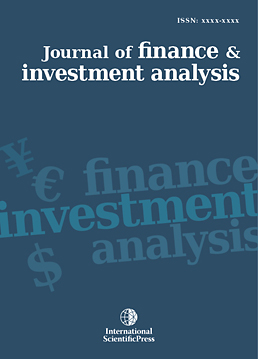Journal of Finance and Investment Analysis
Incorporating Weekend Information in Stock Prices: Evidence from Israeli Stock Market
-
 [ Download ]
[ Download ]
- Times downloaded: 20227
-
Abstract
In present study, we contribute to the discussion on international stock market correlations, by analyzing interdependencies between stock returns in US and Israeli stock exchanges. In particular, we concentrate on the original feature of Tel Aviv Stock Exchange (TASE) where the trading week starts on Sunday and ends on Thursday, creating thus a unique kind of non-synchronous trading - a trading day when TASE is the only active stock exchange in the world. We find that TASE returns on Sundays are positively correlated with stock returns in the US on both previous Thursdays and Fridays that is, on both trading days in the US taking place during the weekend in Israel. On the other hand, S&P 500 returns on Mondays are positively correlated with TASE returns on the same Mondays, but not with TASE returns on preceding Sundays. Together, these findings imply that TASE stock prices on Sundays just "close up the differences" from the US exchanges by incorporating the news that arrive to the world markets during the weekends in Israel, but do not reflect any additional news of worldwide relevance arriving when the world markets are closed. Thus, world markets appear to "wake up" and deal with the new "weekend" information only on Mondays, which seems to contradict stock market efficiency in the international perspective.
